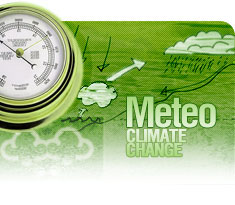http://www.rtcc.org/usa-says-2015-may-be-last-chance-for-global-un-climate-change-deal/
The 2015 climate change conference is likely to be the last chance for the UN process to avert dangerous levels of climate change, according to the lead US negotiator Todd Stern.
Stern said the Durban Platform agreement to negotiate an emissions reduction deal that includes all nations by 2015 and to come into practice in 2020 would need to be ambitious, flexible and take a new approach to distributing responsibility.
"Unless we are able to move beyond old ways of thinking about differentiation, we will risk making the UNFCCC an obsolete instrument for solving the climate challenge," Stern told the World Future Energy Summit in Abu Dhabi.
"The Durban Platform negotiation may be the last best chance for the UNFCCC to create a regime that can alter the course of climate change. Let us be guided at every step and in every decision by our shared commitment to conquer this challenge, to serve our respective nations and all nations, and to make our children proud," he said.
The US did not take up commitment under the existing Kyoto Protocol deal signed in 1992, because it did not require binding action from developing nations.
"In Durban, we agreed to negotiate a new agreement having legal force and 'applicable to all Parties' - in contrast to the Kyoto Protocol, whose real obligations were applicable only to developed countries. So this was a landmark moment. Now we have to deliver."
Stern said differentiation between countries was the most contentious issue of the entire negotiations and the new deal must be representative of a world where 55% of emissions are from developing countries.
"Differentiation should be thought of along a spectrum. A spectrum means, among other things, that we should not have the same expectations for emerging powers like China, Brazil, Mexico or Korea as we have for countries of modest capacity just because all of them are 'developing'," said Stern.
"No country need worry that the United States is seeking to eliminate differentiation and put every country on the same footing, a fear I sometimes hear expressed, but which has no basis in fact."
Stern also called for a "flexible" deal suggesting that nations should not have to abide by the same accounting rules or be required to make commitments on absolute emission reduction suggesting renewable energy pledges and carbon intensity (emissions per unit of GDP) could be enough adding "we should be interested in the overall effectiveness of a country's climate program".
"I would point out that regimes built to encourage a "race to the top" are likely to have the best chance of success. Regimes built on the kind of tough stringency intended to spur ambition can end up doing the opposite if countries lowball their commitments for fear of not meeting them.
"It is interesting that some of the same countries most hesitant about making international commitments are most eager to trumpet the good work they do at home" he said.
President Obama has listed climate change as one of his top three priorities for his second term but there were few signs of a shift in position at the most recent UN talks in Doha.



 Română
Română English
English


